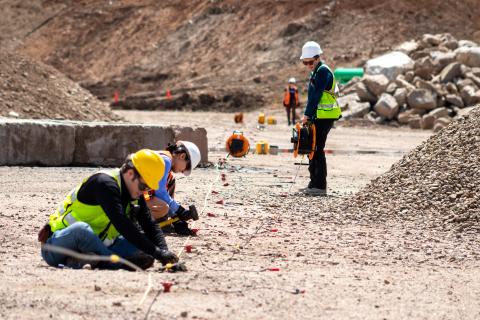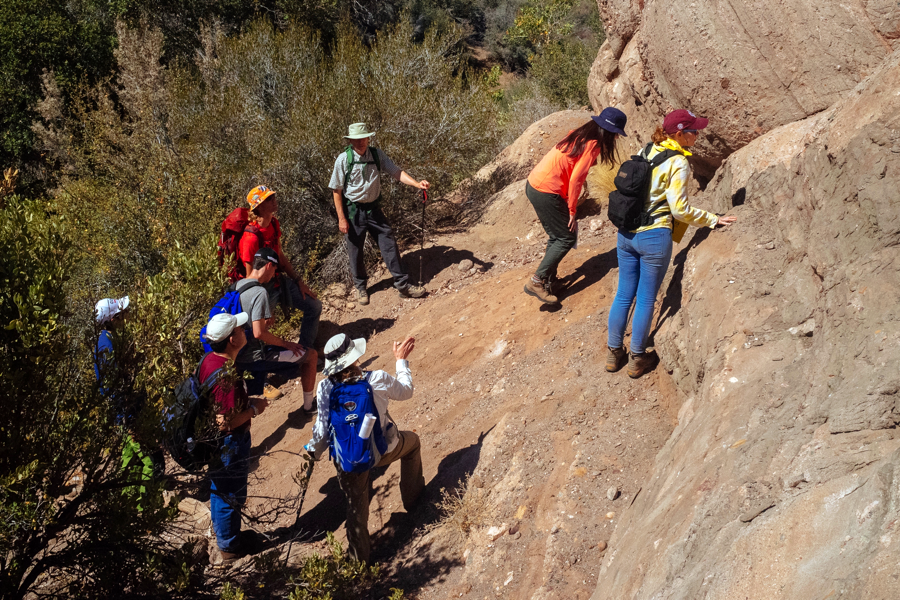All Categories
Featured
Table of Contents
Geologists And Geophysicists in Pearsall Australia 2021
This work is increasingly contracted out, so consultancies provide another source of employment. Consultancy firms differ in size, from extremely small companies to big multinationals. Some consultancies are quite specialised in utilizing specific geophysical techniques or working in particular places, while others use a more varied variety of services to their consumers.
The extraction of gas from land fill websites is another location of work and this may grow in the future. Expedition business may carry out work for building companies, water companies, mining companies and environmental agencies, so geophysicists might be employed in any of these settings. Other companies include: geological surveysgovernment bodies and agenciesuniversities and research study institutes.


Jobs may be noted in the oil and gas sector press. Recruitment is impacted by oil rate changes and the level of competitors for positions varies depending on this. Professions Days, which cover the full variety of geoscience careers and are usually attended by a number of crucial market companies, are run by The Geological Society.
Geophysical Surveys As Landscape Archaeology in Seville Grove Australia 2020
A few of the big oil and gas companies provide a full two-year structured training program throughout the breadth of geophysics, including the opportunity to experience work in numerous teams before specialising in one location. Your training might include work on: existing wellsmagnetic and gravitational potential field data analysisresearchrock analysis. It's more typical for your initial training to be provided on the job.

There might be a probationary duration throughout which you work along with an experienced coworker. Competency-based appraisals happen frequently in most firms. In smaller sized companies, and for academic posts, there is unlikely to be any official training - you'll be expected to start work straightaway and select up skills as you go along.
If you work for a smaller business, you might find that you need to take duty for organizing and moneying your own advancement and training. If you have a geology degree, membership of The Geological Society can be useful for networking and for keeping up to date with the market.
Services Geophysical in Warnbro Aus 2020
You might also find it useful to join the PESGB (The Petroleum Exploration Society of Great Britain, which has a geophysics unique interest group. After a probationary duration, and once you have actually acquired some experience, you might progress to senior geophysicist, then group leader and after that into a senior function in management.
The ease of motion in between roles depends on the business structure. Study at Masters or Ph, D level in a subject associated to geophysics or geosciences might assist with your profession development and development. The employment market within the oil and gas industry is extremely based on rate and this might impact your opportunities for career development.
Not all tasks are dependent on the oil and gas markets. For knowledgeable geophysicists, freelance consultancy offers a good path for profession development. You can likewise specialise in a specific area of geophysics. As a geophysicist, you're most likely to have a number of tasks throughout your working life. Worldwide mobility is crucial for handling peaks and troughs in different countries at different times.
Average Geophysicist Salary in Straffon WA 2020
From geophysics, it's possible to focus on seismology (completing additional training to end up being a seismic interpreter) or to move into related locations such as engineering geology or danger prediction.
Choosing what to study in college is a tough option. Even if you know that your field of interest lies in science, what program of research study is right for you?
The very first step to accomplishing your goal of ending up being a geophysicist is making a degree. Even for entry-level positions in the field of geoscience, you'll require a bachelor's degree (a geophysicist college degree) from a certified college or university. Some research study positions require candidates to hold master's degrees or perhaps Ph.
Geophysicist Salary in Nedlands Australia 2021
Doctoral degrees are particularly essential if you prepare to teach at a four-year institution. Geophysicists apply physics concepts and techniques to study the gravitational, magnetic, and electric fields of the earth. This advances researchers' understanding of both the world's interior core and its surface. Geophysicists must be able to: examine rocks, pictures, and other pieces of information carry out research both in the field and in laboratories produce maps and charts of their findings write reports To accomplish all this, trainees need a specialized education for geophysicist careers.
As stated above, you'll require a bachelor's degree in geoscience or a related discipline, such as a physical science or a natural science, to land an entry-level task. Trainees can likewise prepare by majoring in topics like: Biology Chemistry Computer science Engineering Mathematics Physics The above geophysicist majors use a more generalized method to a single clinical discipline, but many programs require students to take one or more geology course.
Latest Posts
Where Can A Geophysicist Work Other Than The Oil Industry? in Ellenbrook Oz 2021
Geophysicist in Como Aus 2022
Geophysical Surveys Definition & Meaning In Stock ... in Karrinyup Aus 2022